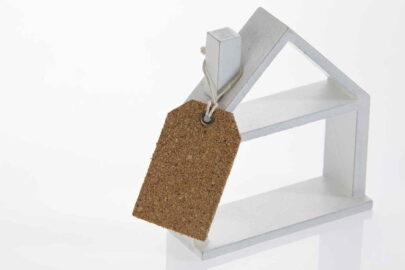House prices in the UK increased once again in November, with the value of the average property rising by another 1%, or £2,808, according to Halifax.
This means the annual rate of inflation currently stands at 8.2%.
This is the fifth straight month that average house prices have risen, with typical values up by almost £13,000 since June, and more than £20,000 since this time last year.
Halifax says the average UK house price is now £272,992.
Russell Galley, managing director, Halifax, said: “On a rolling quarterly basis the uptick in house prices was 3.4%, the strongest gain since the end of 2006, bringing the new average property price up to a record high of £272,992. Since the onset of the pandemic in March 2020, and the UK first entering lockdown, house prices have risen by £33,816, which equates to £1,691 per month.
“The performance of the market continues to be underpinned by a shortage of available properties, a strong labour market and keen competition amongst mortgage providers keeping rates close to historic lows. Those taking their first step onto the property ladder are also playing an important role in driving activity, with annual house price inflation for first-time buyers at 9.1% compared to 8.8% for homemovers.
“We see this across different property types too, with double-digit annual price inflation for flats (+10.8%) over the last year compared to slower gains for detached properties (6.6%). This could suggest the ‘race for space’ is becoming less prominent than it was earlier in the pandemic, with industry data also showing the overall number of completed transactions has fallen back since the end of the Stamp Duty holiday.
“Looking ahead, there is now greater uncertainty than has been the case for quite some time, with interest rates expected to rise to guard against further increases in inflation. Economic confidence may be also be dented by the emergence of the new Omicron virus variant, though it remains far too early to speculate on any long-term impact, given insufficient data at this stage, not to mention the resilience the housing market has already shown in challenging circumstances.
“Leaving aside the direct impact of a possible resurgence in the pandemic for now, we would not expect the current level of house price growth to be sustained next year given that house price to income ratios are already historically high, and household budgets are only likely to come under greater pressure in the coming months.”
Anna Clare Harper, chief executive of property consultancy SPI Capital, added: “Halifax says house prices rose to a 15-year high this month at £272,992, despite the recent end of the temporary stamp duty holiday. This strong growth may seem surprising since transactions also fell to a nine-year low in October 2021.The latest data shows that house-price growth is not just about how many people want to buy and sell, but how much they want to do so, and how able they are to do it.
“The temporary stamp duty reduction designed to combat the impacts of Covid on the housing market acted as a catalyst, but this was not the cause of recent house-price growth. Many people still want and need to buy a home. We also have a severe shortage of quality housing, and stiff competition among lenders, meaning finance is cheap and widely available. As a result, with so many people wanting to, and able to afford to move home, demand is greater than supply and house prices continue to rise.
“Going forward, it is likely that the pace of growth will slow, in particular through the colder winter months which make it harder for many potential buyers logistically, with fewer daylight hours for viewings.
However, growth is likely to continue while interest rates remain low, since the cost of holding on to a property is cheap, and competition amongst lenders means low cost, fixed rate mortgages are widely available.
“The biggest problem the housing market faces is the shortage of available stock, which means that prices are likely to remain strong.This issue is unlikely to change anytime soon due to higher costs of materials and labour, a backlog of planning applications and a growing burden of rules and regulations for property developers to contend with.”
